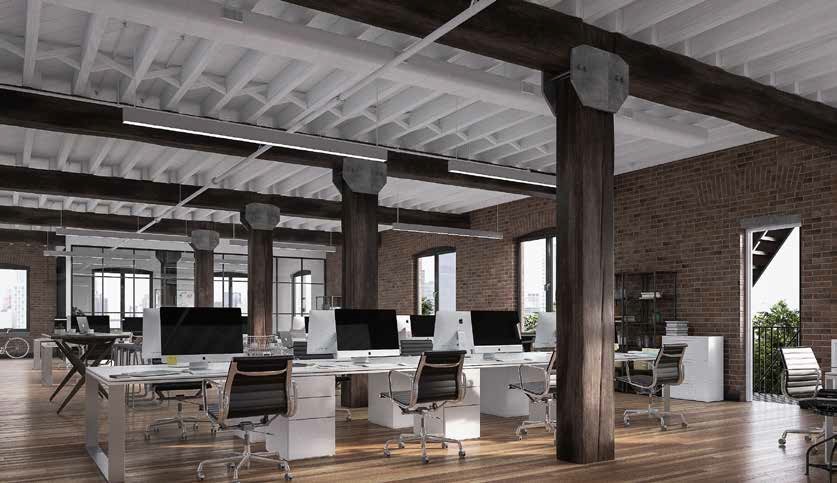In a time when everyone seems to be flocking toward coworking spaces, Adam Gorode had had enough. The slogans. The branding. The noise. The Bitcoin startups.
Gorode was starting to lose it, and maybe lose his company.
“In WeWork it felt like there was something suffocating or holding our culture back from taking off,” he told Technical.ly by phone recently. “And I don’t know if that’s poor leadership, but we were losing some of the dimension that was making the company unique. With WeWork, their culture is so pervasive and clear that it was kind of preventing us from getting ours to solidify, it really had its own gravitational pull. It was an existential threat to the company.”
Gorode is the cofounder and CEO of the Williamsburg-based AGW Group, a marketing agency based in Williamsburg. Up until a few weeks ago, he and his 15 employees were camped out at the Williamsburg WeWork on 4th and Bedford. When he moved the company in it seemed like a perfectly reasonable place for the small agency he’d been building since 2013. By the end, a commercial office for the company in a space nearby at 6th and Havemeyer seemed like the only escape.
WeWork is so good for a company that’s just starting off but also when you’re just starting off is when your company culture is most vulnerable to outside forces. It’s a really interesting thing I had not expected.
“We were competing for space with other companies that might be product-focused or companies working on Bitcoin or coding or people playing beer pong in the lobby,” he recalled. “We had outside forces impacting what was a fragile and new organism. It had to be cared for and you can’t do that when you’re surrounded by a massive company going, ‘Do what you love! Do what you love! WeWork! WeWork! WeWork!'”

AGW’s new commercial office space has about five times as many square feet, its own kitchen area, exposed brick and old wood. It does cost considerably more than WeWork, probably twice as much once it’s all said and done. Still, it’s worth it, Gorode said. The company will be able to grow into the space, and they have plans to open it up some nights for events. Also, he finds it a much better place to invite clients.
Gorode’s history with WeWork is as much about the tangible facts of office life, free coffee and price per square foot as it is a discovery of the importance and malleability of company culture.
“WeWork is so good for a company that’s just starting off but also when you’re just starting off is when your company culture is most vulnerable to outside forces,” he said. “It’s a really interesting thing I had not expected when I started the company.”
AGW’s clients tend toward the creative industries; they include HBO, Vogue and MTV. Its employees tend toward the creative as well (the rapper Himanshu Suri, or Heems, formerly worked there). Gorode found that the homogenized and buzzwordy office culture was hurting his team’s morale, which hurt its ability to recruit new workers, and which hurt the work itself. The different parts of a company bled into each other in surprising ways.
“If you live in a one-bedroom with 10 people, are the people grumpy?” he explained.
That manifested itself in substantial difficulty in hiring new workers. For a time, he stopped all new client work for the company because he wasn’t sure the company would be able to meet the demand with the amount of labor had. Culture does, it turns out, eat your beautifully arranged, carefully curated, ethically farmed Brooklyn strategy for breakfast.
“It wasn’t a debate,” he said. “It was move or die.”
In the two months since the move, Gorode says he’s seen an immediate change in the way his team’s been working and the way the culture he wants to grow has taken root.
“I see it and it’s happening and faster than I thought it would,” he said.
Perhaps, just as people do, companies and organizations can find themselves in a rut. In those cases, a bit of money spent on the corporate equivalent of self-care might look more like an investment than an indulgence.







